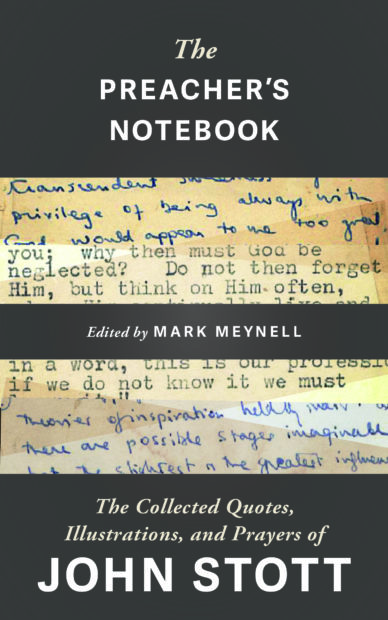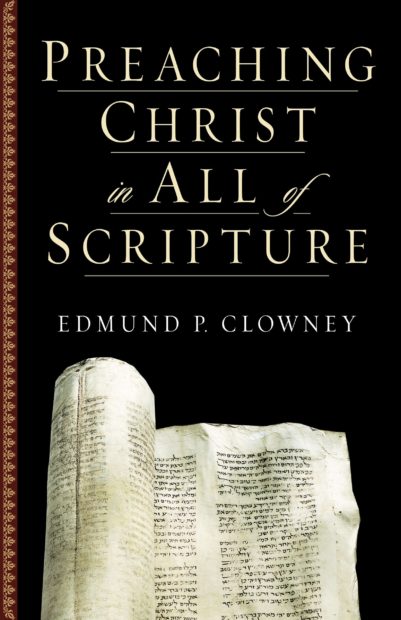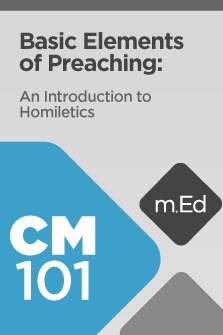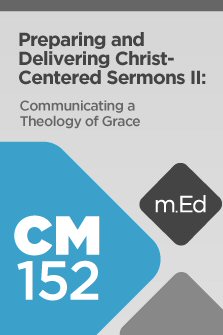Even if you preached the Word every day until the day you died, you’d never exhaust its riches. It’s endlessly practical; no facet of human existence goes unaddressed. And one of the best ways to demonstrate its practical wisdom to the people you serve is by preaching topical sermons. Here, we’ll outline the essential steps for how to write a topical sermon outline. It’s simple:
- Pray for guidance
- Pick your topic
- Prepare with the right tools and books
- Polish your message
- Preach for life transformation
1. Pray for guidance.
The true power of preaching isn’t in the amount of study we do, the books we rely on, or our personal charisma behind the pulpit. If we want to preach to change lives, then we must rely on the Holy Spirit. By beginning your sermon prep in prayer, you express your utter dependence on God to be the true source of power for your preaching.
- Logos blog: Sermon Preparation Is 20 Hours of Prayer
- The Gospel Coalition: The Necessity of Prayer in Sermon Preparation
- Prayer Preparation for Preaching (PDF from Missionaries in North America)

The Preacher’s Notebook: The Collected Quotes, Illustrations, and Prayers of John Stott
Legendary preacher John Stott captured thousands of illustrations, quotes, and prayers on note cards throughout his ministry. Published here for the first time, they provide a fascinating glimpse into the spiritual life of a minister—including his prayer life.
2. Pick your topic.
Here are three questions to ask as you select your preaching topic:
- Who are you preaching to? Every church and every audience within the church is different. What spiritual challenge is your congregation facing? If you are preaching to a specific demographic within the church, such as teenagers, consider the unique challenges they may be facing, and select your topic accordingly.
- When are you preaching? Often the church calendar will provide a direction for your preaching. A sermon series on “New Life” may be appropriate in the spring. If Halloween is just around the corner, you might consider teaching what the Bible really says about the supernatural.
- Why are you preaching? If you find yourself drawn to a specific topic, such as prayer, ask yourself why. Why has this topic piqued your interest? By digging in a bit more, you may identify multiple facets of the issue and turn a single sermon idea into a sermon series.
- Logos blog: 25 Resurrection Sermon Ideas for Easter Sunday
- ShareFaith: Six Methods for Coming Up with Sermon Topics

Preaching Christ in All of Scripture
Whatever topic you choose, ultimately it’s all about Jesus. This book will equip you with the principles you need to identify how the passages you cover are ultimately about Jesus and how to communicate that to your congregation.
3. Prepare with the right tools and books.
Unlike an expository sermon, a topical sermon isn’t necessarily built around a single biblical text. More often than not, your topical sermon will include references to multiple biblical passages centered on a particular theme. Having a good topical Scripture index is a good start, but be sure to check out the resources below for the other essential resources for a solid sermon.
- Logos blog: What Are the Best Books on Preaching?
- Logos blog: Bryan Chapell’s 5 Genius Answers to Common Preaching Questions
- Head Heart Hand: Top 500 Preaching Resources
Commentaries

NIV Application Commentary
Few commentaries are as practical as this one. Featuring contributions from some of the most trusted scholars and preachers, this is the go-to commentary for preachers who take life application seriously. You’ll love the way it works through the biblical text. You’ll get only the essential cultural and historical context, followed by clear exposition and down-to-earth practical application. There are even sections that explicitly describe how to “bridge the gap” between the ancient context of Scripture and a congregation full of smartphone-wielding, modern Christians. A must for any preacher.
Learn more

New American Commentary
Too many commentaries feel like they’re written only for people who write commentaries. This isn’t one of them. The editors of this series are passionately committed to the importance of the local church, and it shows. You’ll find the clear-headed exposition immediately helpful in your sermon prep—and the authors never skip practical application. And they always go out of their way to provide the theological principles that undergird every passage. The perfect combination of theology, exposition, and application.
Learn more

Preaching the Word Commentary
Preaching commentaries need to be in your arsenal. Because they are typically drawn from sermons, they are structured in a way that makes it easy to apply their insights to your own sermons. It’s edited by legendary preacher R. Kent Hughes, and it delivers on everything you’d expect from a solid preaching commentary.
Learn more
4. Polish your message.
After you’ve identified your topic and studied various Scripture passages with the right tools, it’s time to bring all your notes together into a polished outline. At this stage, you are simply organizing all of your thoughts into an easy-to-follow order. But before you develop supporting points, it’s important to identify the one big idea you want your audience to takeaway. Then, each individual point should support that primary message. You might use rhetorical tools such as alliteration or metaphor to influence the phrasing of your individual points.
- Christian Crier: How to Write a Sermon Outline
- 9 Marks: What’s Your Point? 5 Suggestions for Clearer Sermons

The Sermon Outline Bible Commentary
This is a treasure trove of historical sermon outlines that are just as relevant today as the day they were first preached. The 12-volume set contains nearly 4,800 sermon outlines—including sermons from the Prince of Preachers himself, Charles Spurgeon.
5. Preach for life transformation.
It’s not a sermon until you preach it. So what do you need to know about preaching a topical sermon before you step onto the platform? Keep in mind that it’s not just what you say—how you say it has an impact, too. By practicing tried and true methods of effective sermon delivery, your words are more likely to have a lingering impact.
- Ministry Magazine: Effective Sermon Delivery
- Church Source: 6 Tactics for Effective Sermon Delivery

Basic Elements of Preaching
Dr. Gary Carr provides a brief survey of the basic elements of sermon preparation and delivery. His analysis of delivery is especially helpful, covering topics such as the preacher’s character, humor, logic, mannerisms, and speech.

Preparing and Delivering Christ-Centered Sermons II: Communicating a Theology of Grace
Though largely focused on expository preaching, Bryan Chappel’s expert advice is largely applicable to topical sermons as well. In this second course in a two-course series, he focuses on delivery. You’ll learn how to communicate God’s grace not just through the words you say but how you say them.
Conclusion
Ultimately, the Holy Spirit is the one who changes lives and hearts. But he has chosen to do this through the preaching of his Word. As you dig into Scripture and prepare your topical sermon, you may feel ill-prepared and under-equipped. Take heart, knowing that God delights in showing himself strong through those who feel weak. As the apostle Paul said of his own ministry, “When I am weak, then I am strong” (2 Cor 12:10).





